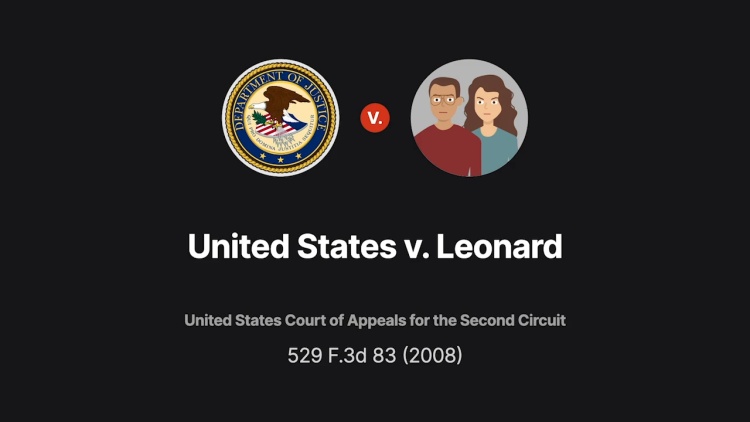United States v. Leonard
United States Court of Appeals for the Second Circuit
529 F.3d 83 (2008)
- Written by Eric Maddox, JD
Facts
Paul Dickau and Nanci Silverstein (defendants) operated independent sales offices that sold interests in several limited liability corporations (LLCs). These LLCs were created to produce motion pictures. Dickau and Silverstein solicited investments in the LLCs and mailed offering materials to potential investors. The offering materials included documents indicating that investors would play an active role in the management of the LLCs. However, the investors were actually given a very passive role in the management of the LLCs. The investors rarely voted, were not given an opportunity to negotiate the terms of the investment agreement, and did not accrue managerial rights until the LLCs were fully organized. Additionally, the investors were not required to have any particular experience in the film industry. Whenever an interest was sold in the LLCs, Dickau and Silverstein would receive a commission. The government charged Dickau and Silverstein with securities and mail fraud. In district court, a jury returned a verdict finding Dickau and Silverstein guilty of securities and mail fraud, based on Dickau’s and Silverstein’s failure to accurately disclose the sales commissions that were received. This disclosure is mandatory under securities laws. Dickau and Silverstein appealed, asserting that the investments in the LLCs did not constitute securities.
Rule of Law
Issue
Holding and Reasoning (Katzmann, J.)
What to do next…
Here's why 911,000 law students have relied on our case briefs:
- Written by law professors and practitioners, not other law students. 47,100 briefs, keyed to 997 casebooks. Top-notch customer support.
- The right amount of information, includes the facts, issues, rule of law, holding and reasoning, and any concurrences and dissents.
- Access in your classes, works on your mobile and tablet. Massive library of related video lessons and high quality multiple-choice questions.
- Easy to use, uniform format for every case brief. Written in plain English, not in legalese. Our briefs summarize and simplify; they don’t just repeat the court’s language.





